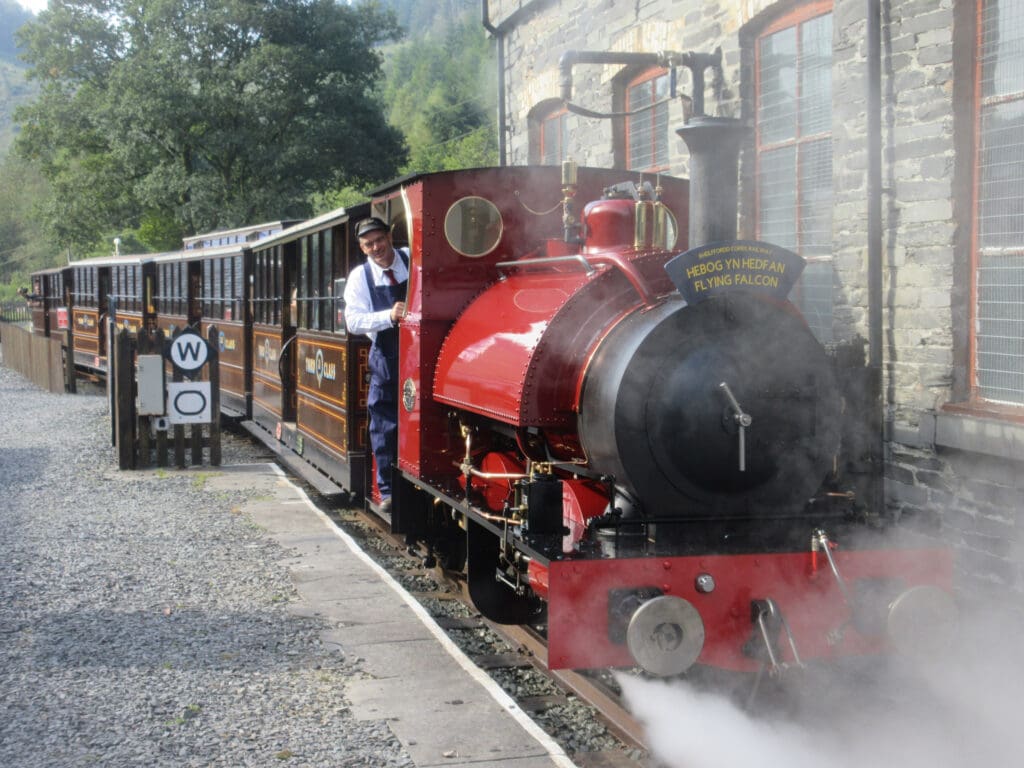The oldest surviving Corris Railway steam locomotive will be joining the newest at the Mid Wales narrow gauge line during June.
The 1878 built number 3 “Sir Haydn” is visiting from Talyllyn Railway, where it has been based since 1951, following the closure of the original Corris line. Sir Haydn will be in action alongside number 10, which was completed last year.
Despite the 145-year gap between the construction of the two engines, visitors will see that the pair are of the same design. Number 3 is the remaining member of the original trio of locomotives that brought steam trains to the Dulas Valley for the first time.
Number 10 is part of the modern day Corris revival which aims to evoke the finest years of the original railway in the latter years of the 19th century and early part of the 20th.
The revived railway had another steam locomotive, number 7 – a new member of a class that first appeared on the line in 1921 – completed in 2005. Passengers today travel on the round trip between Corris station and Maespoeth Junction in volunteer built carriages that follow the design of their Victorian era predecessors, while meeting modern day safety standards.
Numbers 3 and 10 are planned to be in action on regular service trains on June 8, 16, 22 and 29. A Gala Day on June 15 will see a more intensive train service, with number 7 also in steam.
It is believed that the last time two, let alone three, locomotives were seen in steam on the Corris was over a century ago.
Visitors will also be able to look around the workshops at Maespoeth Junction and visit the Museum at Corris Station, from which it is a short walk to the village cafe or the Slaters Arms.
For many years, the Slaters Arms had its beer supplies delivered by railway, with the barrels being rolled across the road from the train to the pub’s cellars.

